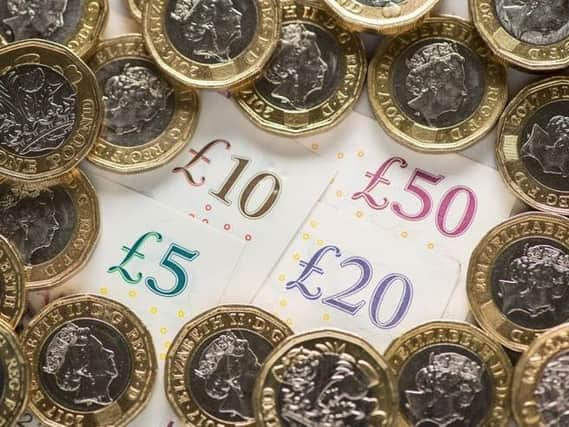Will my child pay tax on their savings? - Gareth Shaw


Gareth says…
The short answer to your question is yes – they could pay tax on their savings. It’s hard to imagine a seven-year old earning a salary, but children have the same income tax allowances as their parents. So, a child can earn £12,570 a year – the personal tax-free allowance in the current tax year - before paying income tax.
And as we’re talking about income being generated from savings interest, there are further allowances from which they benefit. The first is the personal savings allowance, which allows you to earn £1,000 a year in savings interest before income tax starts being deducted. This only applies to basic-rate taxpayers – higher-rate taxpayers get a £500 allowance and additional-rate taxpayers don’t benefit from the personal savings allowance at all.
Advertisement
Hide AdAdvertisement
Hide AdThe second is the savings 'starter rate'. This is designed to encourage low earners to save, and allows them to earn up to £5,000 in interest before tax is paid, on top of the personal allowance and the personal savings allowance. That means your children could take home £18,570 in savings interest before you have to worry about them paying tax.
Say you found a savings account paying 2% per annum. Your children would need to have more than £900,000 in a savings account to generate £18,000 worth of interest. So, it shouldn’t be an issue – with a caveat.
There are some strict rules in place to stop parents from using their children’s tax-free allowances as a way of cutting down their own tax bill, and therefore money placed into a savings account by a parent is taxed as if it is your own once the amount of interest earned exceeds £100 in a year (or £200 if both parents give money). When that occurs, all of the interest earned will be added to your savings income and taxed at your marginal rate.
The way around this is to invest in a savings free savings account for your children, known as a Junior Isa. You can invest £9,000 a year into a Junior Isa, and that can be held in cash or invested in stocks and shares. Any growth from interest, dividends and capital gains will be accrued free of tax. If you are planning to give more than the tax-free limit, consider drip-feeding this annually into their account.
Advertisement
Hide AdAdvertisement
Hide AdJunior cash Isa rates tend to be a bit more generous than adult Isas – the best in the market is currently 2.5% AER.
Once your children turn 16, they become eligible for both a Junior Isa and an adult Isa, the latter of which has an annual savings limit of £20,000, meaning you can invest a total of £29,000 a year until they reach 18, when the Junior Isa becomes an adult Isa.
The watch-out here is that at age 18, the money is your children’s to spend – so if you were planning to put this cash aside for further education or housing costs for the future, you need to have a meaningful discussion with your children about the purpose of the savings.
Gareth Shaw is head of money at which.co.uk.
---
Support The Yorkshire Post and become a subscriber today.
Your subscription will help us to continue to bring quality news to the people of Yorkshire. In return, you'll see fewer ads on site, get free access to our app and receive exclusive members-only offers.
Advertisement
Hide AdAdvertisement
Hide AdSo, please - if you can - pay for our work. Just £5 per month is the starting point. If you think that which we are trying to achieve is worth more, you can pay us what you think we are worth. By doing so, you will be investing in something that is becoming increasingly rare. Independent journalism that cares less about right and left and more about right and wrong. Journalism you can trust.
Thank you
James Mitchinson